“We are brothers and sisters, we are one family.” 19-year-old Teresia from Kenya offers 450 participants of Teach For All global network to join her in the song, which she learned at the Peace club. Teresia arrived in Armenia in October with her natural science teacher Peter Tabichi, the winner of 2019 Global Teacher Prize.
Mr Tabichi used to work in a private school but moved to a remote Kenyan village that urgently needed teachers. Many students there come from disadvantaged families or the orphanage, and the children have to walk several kilometers every day to attend school. Peter Tabichi spends 80% of his salary to support his students and the school.
He considers believing in students’ abilities and potential and developing them to be the most important task of a teacher. Mr Tabichi’s students have won several national and global science contests and earned the award of the Royal Society of Chemistry (UK).
The 37-year-old teacher is a Franciscan: he follows the rule of poverty and preaches love for your neighbors. Mr Tabichi believes that all people have unique abilities and a special role in life and he believes that you receive when you give and you become happy when you make others happy.
Mediamax has talked with the world’s best teacher.
You are the winner of 2019 Global Teacher Prize. What did this prize change in your and your students’ lives, in your community?
I can’t say what it has done to me, but I know what it has done to other people. It has inspired my students, my fellow teachers and even the entire community. They are so proud, they are happy, they give me so much recognition - I’m not comfortable with that much sometimes (laughs – Mediamax). I know that they are happy, it’s just their way of expressing the happiness. The community has really changed their mindset about the importance of education and the importance of educating a girl. For example, Teresia: she is from one of the local villages and what she has achieved is that she made people change their mindset about the importance of educating a girl, investing in education, giving priority to education, and the importance of working together. There are many challenges here, Teresia can tell you about the challenges they are going through, so working together and getting solutions is really important to us.
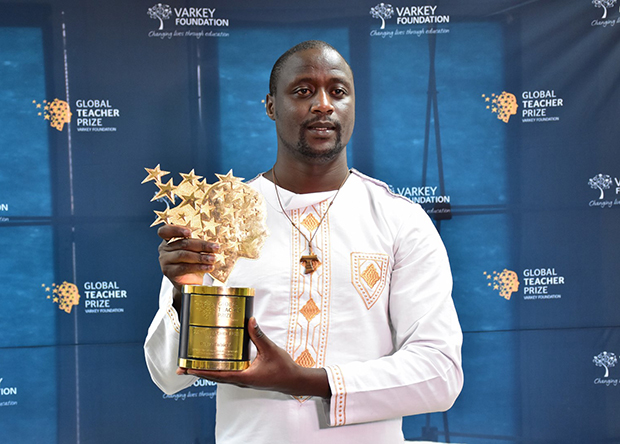 Peter Tabichi
Peter Tabichi Photo: El Intra
As for the impact in my school and also in the community, in my school teachers are motivated and they now see that there is a need to have a different approach to doing everything, even teaching. You don’t have to stick to the traditional methods of teaching. There is need to educate yourself, and you can go to the trainings to learn more about the better methods. They now have that understanding that all of us need to learn more and it will give us empowerment to give more to the students. We have to work with people to bring that change. The change starts from the mind.
It’s one thing to come to school every day and pass knowledge to students, but it’s another to explain to them that education is important and it opens the doors for them. How do you manage to motivate, encourage them?
First of all, young people don’t know they need to be in school. Their parents just tell them to go to school and the kids think they are being forced to be in school. So, you have to show them the role of education. One way to do this is to have practical activities. They are able to connect what is in the books and what is in reality. They are able to do something that works. And they will see the role of education, the importance of what they learn in the class. What they are learning will have application in real life. You have to find for these young people the exciting ways of showing them they need to be in school.
The best way for me is integrating ICT technologies in class. In our school, we don’t have facilities, so it’s not like in international schools, but you will see me with a laptop and a projector all the time. I know it’s an exciting way of really connecting with students. Just as a teacher, as someone working in education you have to look for an exciting way of presenting information to the students, make them develop that love and get them to enjoy and see what education gives them. We also need to make them work together. If they are getting challenges together, they will be able to solve them, they will be able to discuss and share. So, you have to enhance that team work, that coming together and working together.
And then, the most important thing is that you have to get support from people. It is about teamwork, collaboration, and my school administration is very supportive. Sometimes you work through challenges and people don’t help, but when they understand what you are doing, they come out and support you. Our school administration, teachers are very supportive.
Were here cases when parents didn’t allow their children to go to school, preferring for them to stay at home and help them?
At times parents think that children should just go to school to get basic education. Once you know how to read and write, it’s enough to get money. But I don’t think it is about writing and reading only, it is about being empowered. When the children are at school, they are able to learn about collaboration, teamwork. In school, there is so much to learn, it’s not just about reading and writing and then making money. Parents at times have that mindset. I think it is because of their background, what they went through while growing up. I think more needs to be done to change that mindset, for them to understand the meaning of education, of why children need to be in school.
Please, tell me about your students, their achievements. What do they do after graduating from school?
After school they do courses, like Teresia. She is going to join a university, she has passed the exams so well with very good grades, so she will able to get admitted. Teresia wants to do science. She wants to come back and help people in the society through what she will be able to learn in the college. We have other students who do courses in teaching, computer science. Our school also has students who don’t come with high marks, but we still help them see the meaning of education. For them, we do career counseling, so they can see there are other places they can join. There is vocational training, for example, some students can learn to become mechanics, so they have at least something to do.
We also want to make sure the students make use of their talents. We want to show them that it’s not just abusing drugs in the village once school is over. We give them empowerment. When they are out of school, there is something they can do, there is always a way they can empower themselves. We have to enlighten, support them.
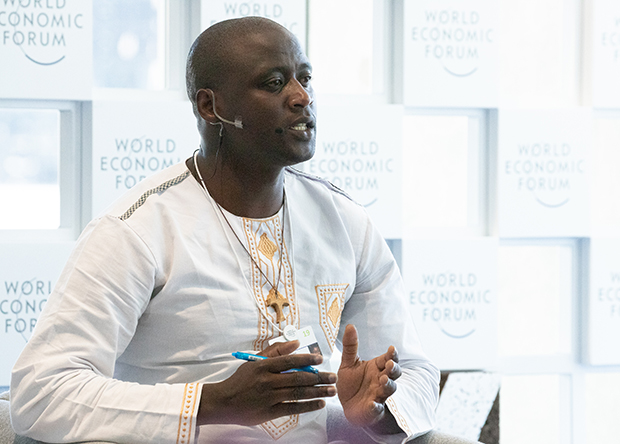 Peter Tabichi
Peter Tabichi Photo: World Economic Forum
Of course, the most important thing is to know how to fit into the society, how to promote peace and deal with challenges, for instance, when there is shortage of water. In school, we try to give them opportunities to learn these aspects which will make it easy for them to deal with challenges once they are out of school. That is why I think education is about empowering students, giving skills that will make them creative people. Another thing; when they come back to the village and are able to solve challenges they go through, it will not stress them so much because they are already equipped and know how to deal with these challenges.
Can you tell us about your two clubs - Peace and Science?
I like working with clubs because it is a practical way of teaching students. You don’t go to class just to teach, you have to look for a practical way to present what you are talking about. If you don’t get that exciting way that I have mentioned, the students won’t enjoy the lesson, it wouldn’t make any sense to them, so you have to look for an exciting way. That is why we have many clubs - Science, Peace, Young Christian Students Movement.
Peace club is about uniting students, it’s meant to bring them together. They do a number of activities like debates, when they talk about gender equality, conflict management and justice, and they do drama, acting, role-playing, jogging and singing.
You let students forget about challenges they get through at home and the trauma they faced in the past. When they are playing, active and happy, they forget all that and they see there is another chapter. It’s like a book. You don’t open the first page and read only the introduction. You have to know that there are other good chapters ahead. It’s really exciting to give them hope.
Science club is also about making them work together, but it also helps them develop problem-solving and communication skills, be able to do research. We are facing so many challenges in the society that unless we have people equipped with these skills, the issues won’t be solved. That is why we give them so much support in Science club. They do research, read science essays, make prototypes of devices from available materials…
What is your source of inspiration to do this difficult job, where do you get the energy for it?
You have to be self-motivated, you don’t need to be rewarded all the time and you don’t need someone to tell you “thank you”. You have to get that self-motivation from your heart, and it changes your mindset. I think it’s more of a personal task, but you also need to get more enlightenment and motivation from people. There are people who inspired me; we have success stories in Kenya, in Africa, where people have done so many great things. Those stories inspire me, and my faith too is a great part of what inspires me.
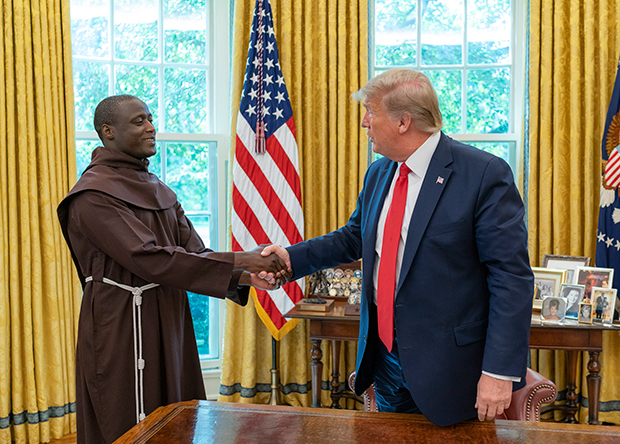 Peter Tabichi and U.S. President Donald Trump
Peter Tabichi and U.S. President Donald TrumpPhoto: Whitehouse.gov
I believe that all of us are family and we need to support each other. We are all brothers and sisters, we are all united. My faith is based on the teachings of Franciscan brothers. As a Franciscan, you know about humility and fraternal love - everyone is you brother and sister. My faith contributes so much to what I am doing, it gives me so much inspiration. Other things that also inspired me are challenges I went through and I have seen my students go through same challenges. I was able to overcome those challenges. The best thing is that I got support from people, my family members. My father is a teacher and he supported me, and I was able to get out of the challenging situations. That experience itself inspires me. When you face challenges, when there are difficult things, moments, there is always a way out of it, so you have to be optimistic.
What is your final purpose? When can you say: “At this stage, I am finishing my mission”?
I believe that all of us have more tasks ahead of us. Each and every day life brings new experiences, things to learn, so you can never say you are on the top. I think each day is another chance to learn something new and focus on doing more: empower the society, inspire the society, make yourself happy, and most importantly, make other people happy. I just want to say that now, when I’ve won the Global Teacher Prize and I have been receiving so many awards, I want to use that voice to empower other people, especially those who are in really disadvantaged areas, make them see that they can also overcome the challenges they are going through. So, this is the best way of using my platform, my chance to help others, this is what I want to achieve.
But I don’t want to say that I am already on the top. No, I don’t think there will be time when I will sit down and say: “Let me sleep, I have done everything.” Unless I become old and it is time to die, but as of now, I feel that there is so much I need to do. And it makes me very happy. When I see that children who come from very poor backgrounds are able to shine and go to university, like Teresia, when I see them smiling and sharing with other students and happy, it is happiness. It’s not about personal investment or property, it is about empowering others, using your talents to give more to the society and inspire others. It’s a long journey. And that is why I don’t want to go out and say that this is the end of it.
Lusine Gharibyan talked to Peter Tabichi
















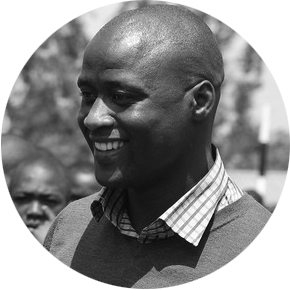



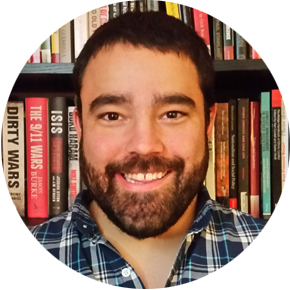






Comments
Dear visitors, You can place your opinion on the material using your Facebook account. Please, be polite and follow our simple rules: you are not allowed to make off - topic comments, place advertisements, use abusive and filthy language. The editorial staff reserves the right to moderate and delete comments in case of breach of the rules.